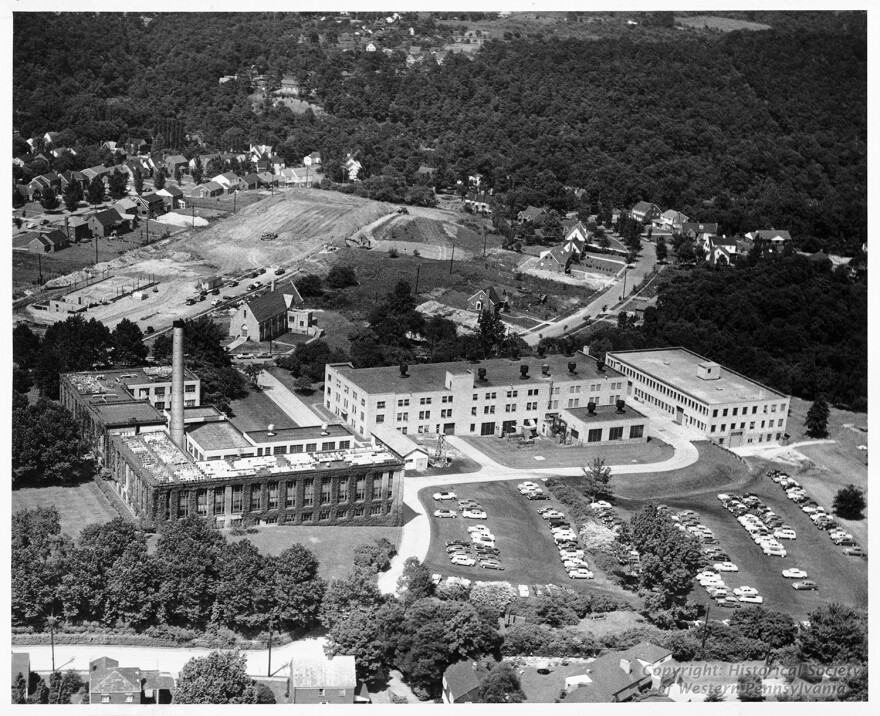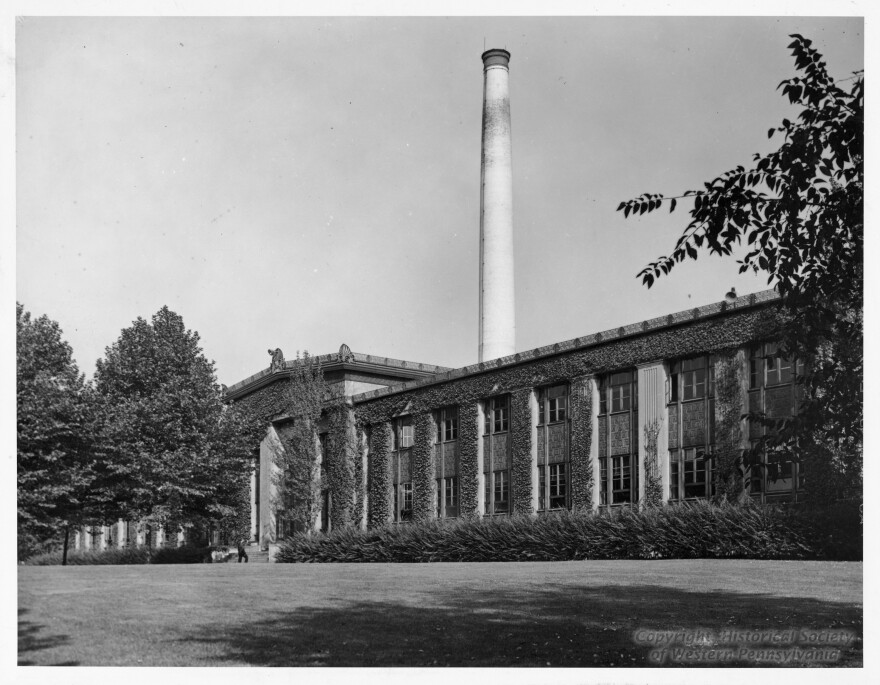One of President Trump’s signature campaign speeches was at a scrap aluminum plant near Pittsburgh in January 2016.
“We are going to put American steel -- and aluminum – back into the backbone of our country,” he said at the speech in Monessen, Pa. “This alone will create massive numbers of jobs, high-paying jobs.”
The Trump pledge to revive manufacturing in western Pennsylvania hinged essentially on two factors: higher import tariffs that would allow domestic factories to charge more for their products, and lower energy prices thanks to natural gas.

But there are problems for each, and analysts say the chances of aluminum coming back are slim. Alcoa is now just a part of its former self. The company was spun off last year and it now focuses on mining, refining and making raw aluminum.
Another company, called Arconic and based in New York, makes high-tech aluminum products such as truck wheels, sheet aluminum for vehicles like the Ford F-150 and lightning resistant screws.
Alcoa’s business of making aluminum inside smelters is heavily reliant on cheap power, said Chris Briem, an economist with the University of Pittsburgh.
“Aluminum, among manufacturing industries, is a very energy intensive business,” said Briem. “To have a manufacturing plant in aluminum you have to have a ready supply of affordable electricity, and that hasn’t been the case in western Pennsylvania for many decades, if ever.”
Alcoa only has two operating aluminum smelters left, in New York and Washington state, and less than 2,000 unionized workers in the U.S. Briem said that even the hyped-up shale revolution can’t bring back aluminum production. Although it has the potential to generate large quantities of low-cost electricity, energy is just way too cheap to produce in other countries.

As Briem points out, one of Alcoa’s biggest smelters is in Iceland, “a place that doesn’t have the raw materials to support that industry but it’s brought in by ship and the geothermal energy provides this incredible inexpensive energy price that makes it a center for aluminum production.”
Even though Alcoa hasn’t made aluminum in this part of the country since the 1970s, leaders at the Pittsburgh-based United Steelworkers, which represents Alcoa workers in the U.S., welcome the return of the hometown team, said vice-president Tom Conway
“When this split came about, I wasn’t sure where Alcoa would end up because they were more global than centered here in the U.S.,” said Conway. “And they could have shown up anywhere, so I’m pleased they found their way back here.”

However, Conway said Alcoa has so many plants around the world that tariffs would end up hurting its bottom line. And he said the Trump administration has been dragging its feet on protecting U.S. companies.
“And hopefully they want to do something but so far it’s been a lot of rhetoric,” he said. “As it has been on steel, and they’ve slowed themselves down on these things, and while they slow themselves down the imports rush in.”
Tariffs on aluminum imports from Russia, China and Canada could also have unforeseen consequences like forcing up the cost of a can of Coke by a couple cents, or an F-150 pick-up by a few hundred dollars.
The truth is that making aluminum is just not America’s, or Pittsburgh’s, game anymore. But the U.S. is still a place where big multi-national companies can be based, and Alcoa is still a huge deal. From its headquarters on the North Shares, its executives will oversee smelters all over the globe, not just in Iceland, but also in Norway, Canada and Saudi Arabia.




